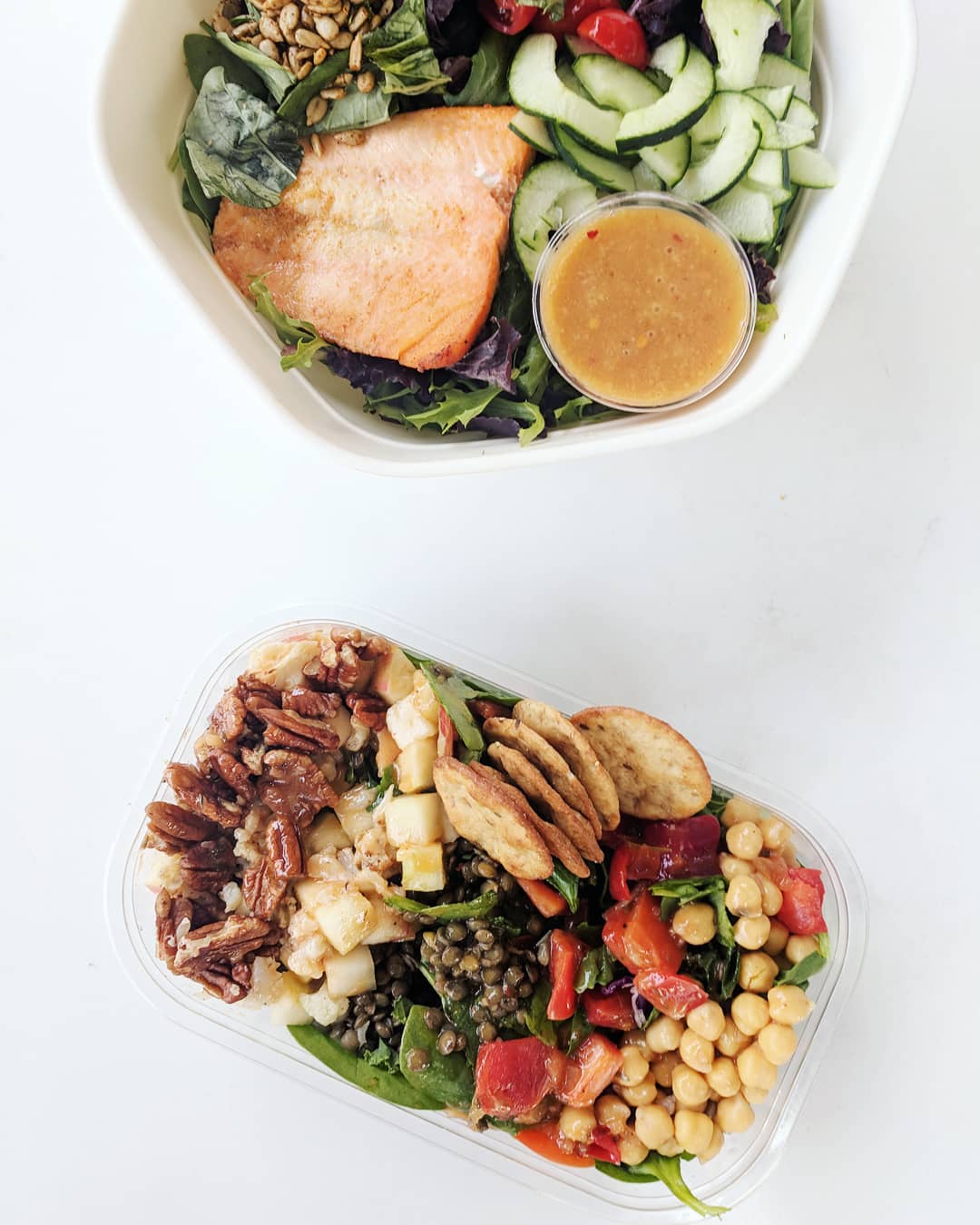On practicing in the “grey” – Integrating Intuitive Eating and Medical Nutrition Therapy
Lately, there have been quite a lot of outcries from dietitians who like the idea of Intuitive Eating but feel it doesn’t fully apply to all of their clients and/or feel judged by the “anti-diet” dietitians. Many in the non-diet/anti-diet community, (made up of health professionals, researchers, and activists who put deep thought into diet culture, weight stigma, and the prevention of eating disorders) do indeed give off a lot of angry vibes, and with good reason – diet culture is a maddening storm of oppression towards people in larger bodies and promotion of disordered eating. In my opinion, there is a divide here that simply shouldn’t exist. There’s work to do on both sides as far as communication and understanding goes, but I see powerful, positive change coming to the world of dietetics through working together.
As a soon-to-be dietitian, I personally am choosing to not label myself as "anti-diet" because I think enough people don't even really understand what a dietitian is in the first place; no need to add to the confusion further. I also think the word "diet" has been co-opted by diet culture to connote a weight loss pursuit. In its original definition, “diet” simply refers to an eating pattern. Hence, a “diet”-itian is a health professional who specializes in tailoring eating patterns to meet your specific health needs. I'd personally rather make my approach to health apparent through the way I talk about food and nutrition instead of adding "anti-diet" to my bios, but I think my beliefs still do indeed align with the anti-diet community.
(For non-RDs reading this post, a registered dietitian nutritionist is who you should see for nutrition advice! We are highly qualified with at least a bachelor’s degree + 1200 hours of supervised practice and some have additional degrees or credentials, have state licensing laws, and complete lots of continuing education to stay up-to-date).
I am aiming to practice in the gentle nutrition area of Intuitive Eating, mainly in preconception, prenatal, and postpartum health. Many of the RDs indicating their frustration about Intuitive Eating are also working in a similar "grey" area – or with people who have specific health concerns or want to improve their general health that do not necessarily have an eating disorder or disordered eating – and seem confused as to how telling someone to “just listen to their body” will work for their clients’ goals. I can totally understand their confusion, a lot of the popularity of Intuitive Eating comes from RDs who practice in the eating disorders/disordered eating field. Their focus is on healing people’s relationships with food, and while they also care for people with specific health conditions, their niche is not the same.
However, this area – practicing medical nutrition therapy (the standard of care that RDs provide to patients) while promoting intuitive eating – really isn't that grey at all! Gentle nutrition is the 10th and final principle of Intuitive Eating. It involves applying evidence-based nutrition science to help improve an individual’s overall well-being without pursuing weight loss, and taking care to consider any mental health implications of a therapeutic diet. Whether this is for pregnancy, diabetes, cancer, or an autoimmune condition, Intuitive Eating is a fabulous lens for medical nutrition therapy; it helps keep the approach client-centered and without weight bias.
I think a lot of the "black and white" comes across in social media posts from and discussion with RDs who practice in the eating disorder recovery field, but may not necessarily be specifying this. However, their input is so needed; after all, we are trying to prevent what they are seeing in treatment. We all need to make our niches a little more clear - I think this will help the public understand our message targeting better and will also help this divide dissolve.
On the other side, there is the responsibility of anyone who cares to make a public statement about Intuitive Eating to fully understand what it means. We all need to remember that it is in no way abandoning medical nutrition therapy, but in fact fully embracing it as part of an integrated approach to holistic health. Intuitive Eating was, after all, thought up by two registered dietitians.
While I find so much of this controversy frustrating, it is a great opportunity for me as an almost-RD to see so clearly where my niche will lie, and who I want to bring on board with me. I see RDs doing amazing work who feel ostracized, and shouldn’t. I see mentors being discouraged on both sides, when their end goals to combat diet culture are so similar.
What if Intuitive Eating became a standard of care for registered dietitians? Teaming up to combat weight stigma, prevent eating disorders, and promote health for people in all bodies, we have potential to radically change the health of our clients on a systemic level.


